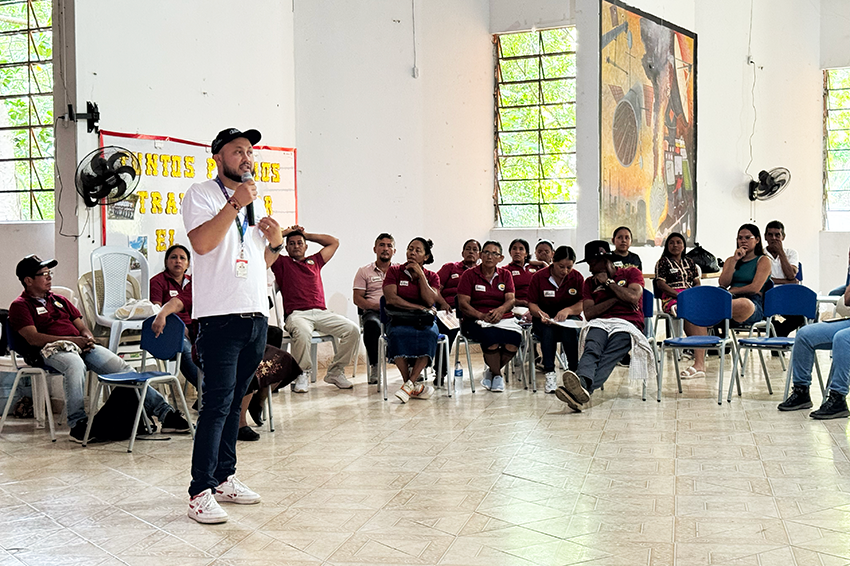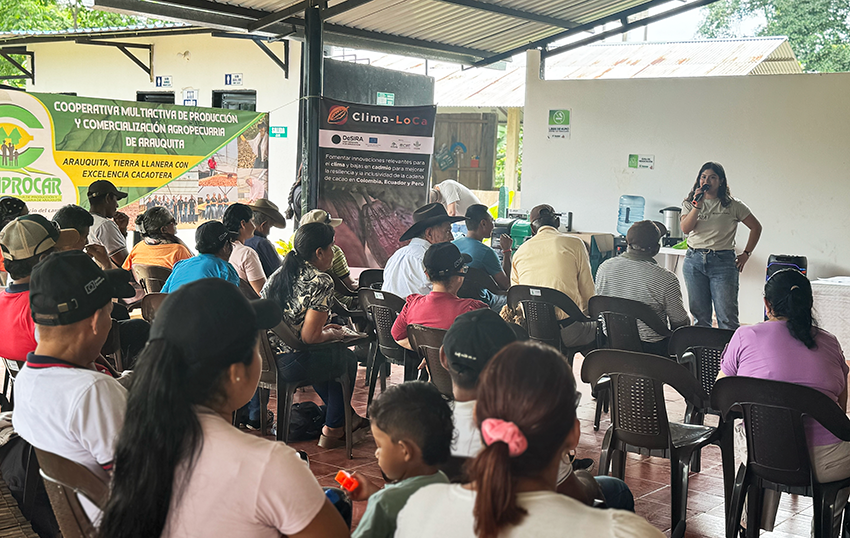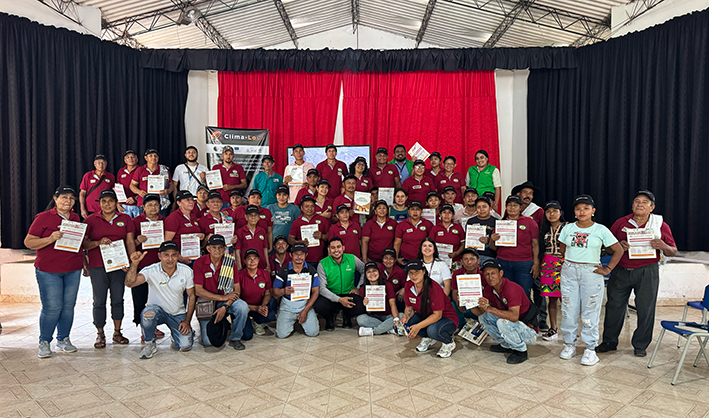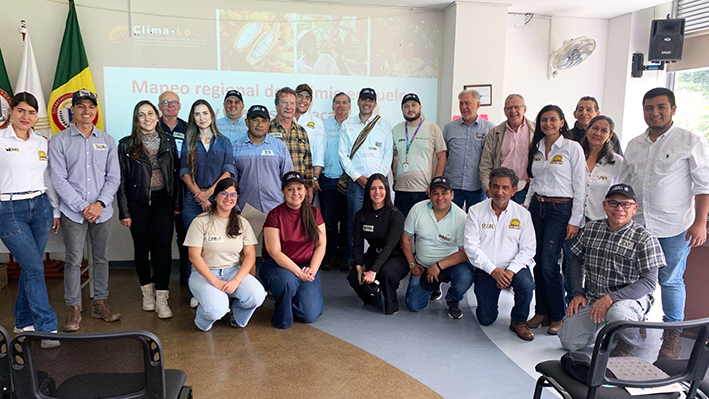The Clima-LoCa project continues to strengthen its work with cocoa-producing communities in Colombia through a series of workshops where the results of cadmium mapping carried out using samples taken directly from cocoa farms are shared. In recent weeks, meetings have been held in Arauca, Quindío, and Antioquia, with a total of 140 producers participating.

During the workshops in Apartadó and Dabeiba in Antioquia, Arauca, and Armenia (Quindío), Martín Cepeda, part of the team that carried out the soil mapping, participated and also presented the results obtained. Photo: Clima-LoCa.
During the workshops, the specific results for each area were presented, allowing producers to learn about the cadmium levels found in their plots and analyze their implications for marketing and production sustainability.

María Camila Giraldo, part of the Clima-LoCa team at the Bioversity and CIAT Alliance, participated in the workshops. Here she is at a workshop with the Multiactiva Cooperative for Agricultural Production and Marketing of Arauquita (Coomprocar). Photo: Clima-LoCa.
“Thanks to Clima-LoCa for training us. It helps us improve how we manage our cocoa crops, learn about cadmium, and thus be more competitive in the market,” said Silvia Sanmiguel, legal representative of the Asocoprocada Association of Dabeiba, Antioquia.

The Asocoprocada Association of Dabeiba, Antioquia, participated in cadmium mapping carried out on cocoa farms. Producers received an information sheet with data on the soil quality of their farms. Photo: Clima-LoCa.
This participatory science exercise seeks to strengthen informed decision-making and promote cocoa production that is more resilient to the challenges of climate change and the demands of international markets.

In Armenia, the Quindío Cocoa Association (Cacaoquin by its Spanish acronym) participated and showed great interest in the information presented. Photo: Clima-LoCa.
In the coming weeks, Clima-LoCa will continue these outreach events in other key regions such as Santander, Meta, and Putumayo, reaffirming its commitment to sustainable and competitive agriculture.

